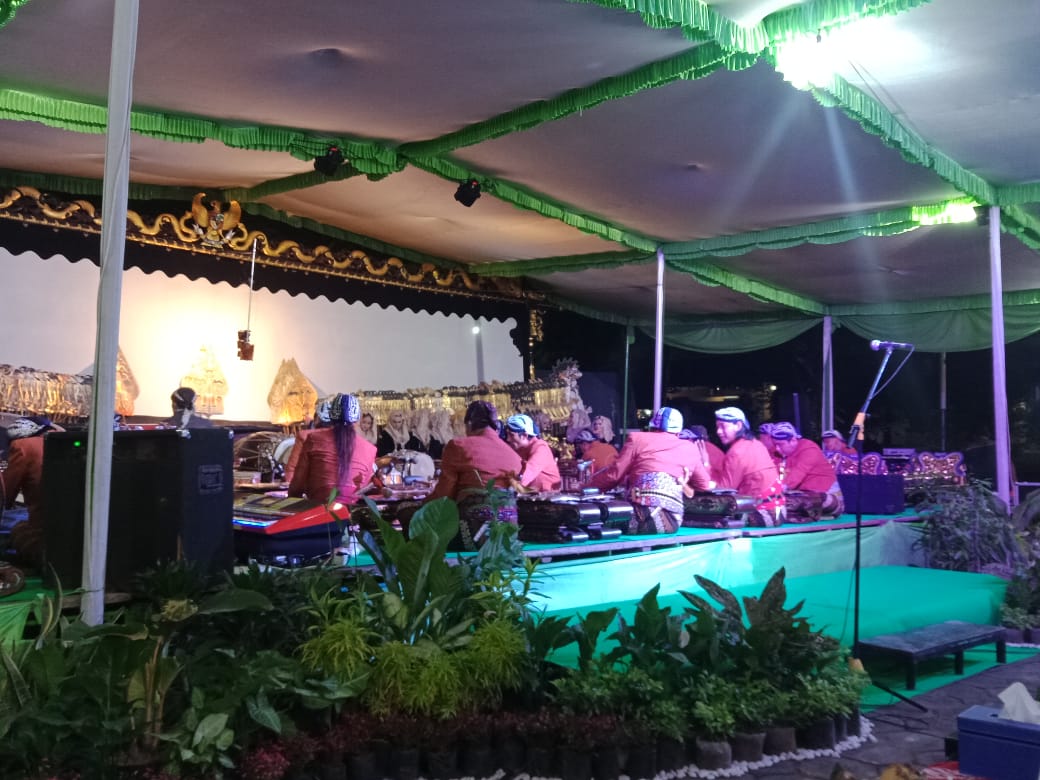
Countering Radicalism through Cultural Approach
Radicalism is an ideology, concept, though, or action that aims to change an established social order either toward negative or positive direction. This was expressed by Prof. Djoko Suhardjanto, the Dean of the Faculty of Economics and Business (FEB) UNS during his opening remarks in National Seminar in Countering Radicalism through Cultural Approach, Friday July 27th, 2019.
In front of 300 (three hundred) participants, Prof. Djoko Suhardjanto, explains that to prevent a negative radicalism, we can use cultural approach. “Urip sing urup memayu hayuning bawono (translit. life should benefit others around us and must strive for salvation, happiness and welfare), as we live, we should benefit other, if we can implement this value, certainly we can prevent radicalism,” he explains. Courtesy as the noble value in Javanese culture should be applied in daily life, to have tepo-seliro (translit. feeling what others feel), grapyak (translit. friendly or hospitable), lembah manah (translit. modest or position oneself in the low and humble position), harmonious life, and ewuh pakewuh (translit. hesitation to refuse/to frankly speak about feeling, less assertive) can also counters for the radicalism.
Similar message was expressed by Abdul Kharis Almasyhari, the Chairman of the 1st Commission in the Republic of Indonesia House of Representative (DPR), stating that most of the current issues can be solved through cultural approach. “In this developed technology era, we are required to find an alternative solution through the national culture. Electricity can be cut, if the operation of communication providers is disrupted cellular communication will be interrupted.
However, all those can be solved using cultural approach, where we have kenthongan (a ‘slit-drum’ idiophone used as a signal instrument used by neighbourhood night watchmen) as a traditional security communication tool,” Almasyhari explains. Further, he mentions that the system on RT (lowest structure in village government) and RW (higher structure, which consist of several RTs) is implemented optimally through community meeting, personal approach, and mutual control mechanism among the citizen, most of the problems arise, including radicalism, can be solved.
The seminar was conducted in the main FEB Hall (3rd Building), organized by FEB UNS in collaboration with the 1st Commission in the Republic of Indonesia House of Representative (DPR) and the Ministry of Communication and Information. For the night, FEB UNS also held a shadow puppet performance by Ki Warseno Slenk as the dhalang (puppeteer in Indonesian wayang performance), with the story of ‘Wisanggeni Lair’ (the birth of Wisanggeni).
In the future, the Dean of FEB UNS mention that they will continue to schedule cultural events at FEB UNS during semester breaks. This event aims to maintain and preserve local culture while introduce them to the young generation. The event can also strengthen the connection among the alumni, students, and academic staff through a friendly event. This will be in line with the spirit of UNS as the Fortress of Pancasila to ward off the negative radicalism.

